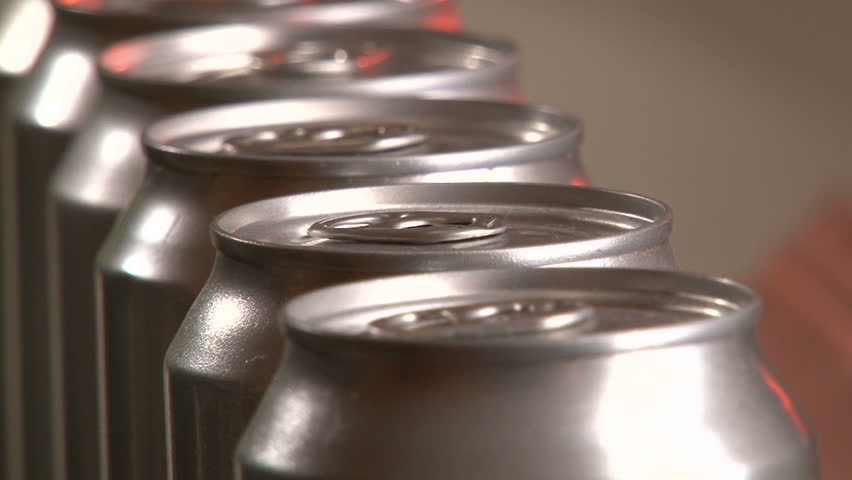)
Anheuser-Busch, is "agitated"
over tariffs, Sen. Bill Nelson says.
Since 1974, the king of beers has produced aluminum beer
cans there, cranking out up to 2,500 a minute — a thriving operation that it
says is threatened by President Donald Trump's tariffs on imported steel and
aluminum.
A year ago, Anheuser-Busch opened a metal container plant
that makes aluminum bottles, adding 75 jobs with the help of state incentives
from Gov. Rick Scott, who clutched scissors at a ribbon-cutting in May of last
year and was on hand for a ground breaking ceremony in 2015.
Everyone was all smiles.
Then came the tariffs. Trump on June 1 imposed a 25 percent
steel tariff and 10 percent aluminum tariff on Mexico
and Canada
as a way to reshape the North American Free Trade Agreement. Other tariffs were
slapped on the European Union and other countries.
In the middle of a U.S. Senate race, Scott is suddenly
caught between the president he supports and the business community that has
backed him for eight years but which staunchly opposes Trump's trade policy as
bad for jobs.
One of Scott's biggest allies, the Florida Chamber of
Commerce, says Trump is inviting a trade war with U.S.
allies and that the tariffs could put Florida 's
economy at risk — jeopardizing the
cornerstone of Scott's agenda as governor.
Related coverage: Trouble brewing? Trump's tariffs worry Florida 's craft beer
makers.
Scott has said virtually nothing about a subject that could
have serious implications for an economy he has spent eight years nurturing.
"I think it is important that we have free trade, but
it has to be fair," he said at a Tampa
visit in April. "If we're trying to sell there (another country), we
should have the same opportunity as they have the right to sell here."
Scott's opponent, Democratic Sen. Bill Nelson, who toured
the Jacksonville
plant in April, says the brewer is "quite agitated" over Trump's
actions.
"You put a 10 percent tax on aluminum and that adds up
to real money for the consumer," Nelson said.
In a statement, Nelson said: "Starting a trade war with
our closest allies is the last thing we should be doing. No one wins in a trade
war, especially hardworking families who may have to pay more for the goods
they buy every day."
Scott's campaign has not responded to a Times/Herald request
Tuesday for more details on his position. Scott was raising campaign money in San Francisco Wednesday.
While the chamber will remain a stalwart supporter of the
Republican governor, its position could force Scott to take sides on tariffs.
After Trump signed proclamations imposing the tariffs, America 's
allies have responded with intense criticism and retaliatory trade sanctions of
their own.
The European Union said Wednesday it will impose new duties
on a wide array of U.S. products, including another popular beverage and
Florida's most iconic product of all — orange juice.
Talk about a pocketbook issue: The cost of a six-pack of
beer could emerge as a flashpoint in Florida 's
U.S. Senate race.
"Because beer is increasingly packaged in aluminum
cans, the proposed 10 percent tariff on aluminum will likely cost U.S. brewers millions of dollars, making it more
difficult to grow and further invest in our U.S. operations," Anheuser-Busch
said recently. "We urge the administration to consider the impacts of
these decisions on the thousands of hard-working Americans and the millions of
beer drinkers that make up the U.S.
beer industry."
Peter Quinter, a Florida
lawyer who heads the international trade
law group at the GrayRobinson law firm and has 30 years of trade experience,
said Florida
residents will feel the impact of Trump's tariffs in a lot of ways.
"The effects will be everywhere — the construction of a
building, an A.C. unit, a can of beer," Quinter said. "Steel and
aluminum are the basis of much of what we use. Everything will go up."
The tariff's effects on the beer industry will be far
reaching, hurting not just massive companies like Anheuser-Busch but the craft
beer industry, too.
"This is going to have quite possibly a negative effect
on a sector of the economy, small breweries, that have been a bright spot for
five years," said Brewers Association CEO Bob Pease in March.
Jim McGreevy, president and CEO of the Beer Institute, a
national trade group, said the tariff is a $347 million tax on the brewing
industry.
"This has very negative impacts to end users of
aluminum," McGreevy said. "For brewers, aluminum is the single
biggest ingredient cost."
Scott has advocated increased trade with foreign countries
as a way to grow jobs. He has promoted Florida
ports as engines for increased global trade and has long championed economic
incentive programs to attract jobs to Florida ,
despite opposition in the state Legislature.
According to the Department of Economic Opportunity,
Anheuser-Busch received incentives worth up to $2.6 million for the Jacksonville metal
container plant, which represented a $170 million investment by the company.
"I look forward to seeing Anheuser-Busch's ongoing
success in Florida
as we continue to fight to bring more important jobs like this to our
state," Scott said in a statement issued by his office last year.
Anheuser-Busch's Jacksonville
brewery opened in 1969 and is its fourth-largest brewery. The company employs
about 800 people in Jacksonville .
Craig Tomeo, general manager of the Jacksonville
brewery, addressed Scott and the Cabinet in 2013 and said a year's worth of
cans produced in Florida ,
stacked end to end, would circle the Earth seven times.
"Most of those cans stay in the Florida market," Tomeo said.
by Steve Bousquet and Alex Leary
Original Article
Comments
Post a Comment